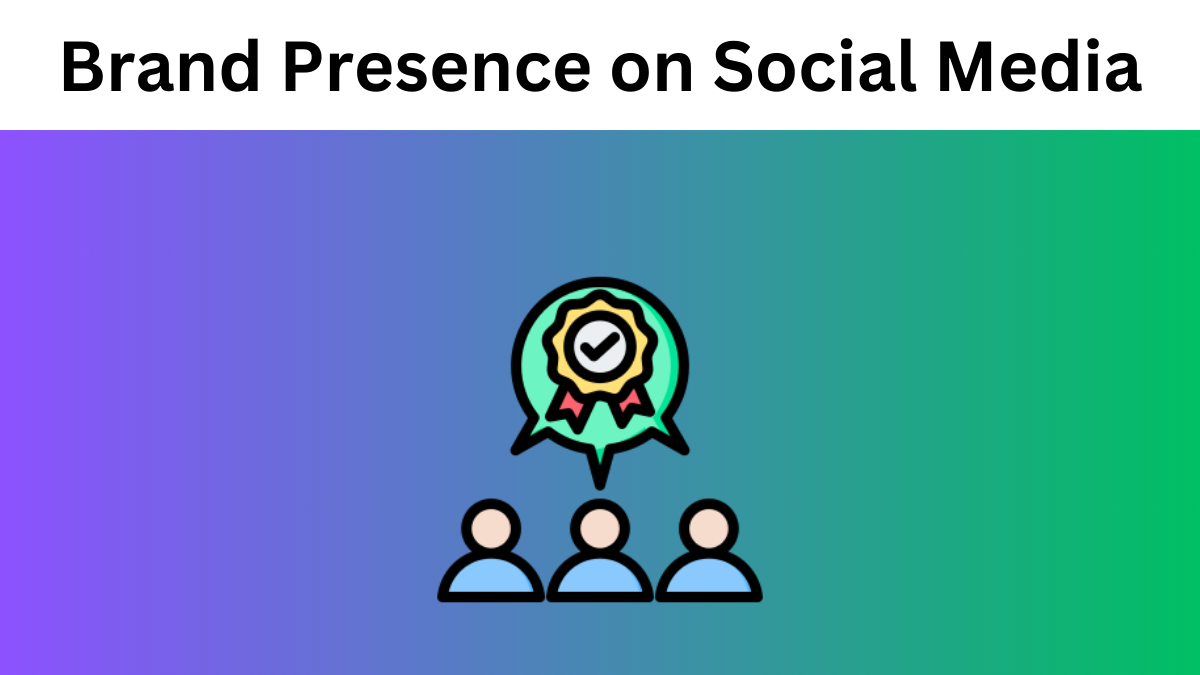Consumers use social media platforms to express themselves and to find out more about a brand’s products in an informal way. They may even initiate contact with a brand. Part of a great customer experience is for brands to be present in the same place as their customers, and social media gives them this opportunity. The success of brands on social media is directly proportional to the effort they put in. Here are some reasons why a strong brand presence is so important and how to build it.
Increases Reach and Engagement
Social media networks are expected to have 327 million regular users in the U.S. alone by 2027. This gives brands a significant opportunity to engage with current and potential customers. They can share content, increase brand awareness and build relationships. The type of content they post will determine whether consumers want to find out more about them or not.
Customers today want more than just information on products or services. They want a comprehensive view of the organization, its values, and what it does. A marketing strategy of consistently posting informative, engaging content helps to establish a relationship with them. For example, brands can share content such as photos of employees giving back to the community. This showcases a culture of service and builds trust.
Pro tip: For brands that use Macs, engaging on social media can be frustrating when a Mac is slow. Apps, macOS, and browsers store cache files to make data retrieval faster. This can clog up storage over time. One of the tips that reportedly help is to delete system junk, unwanted apps and malware using CleanMyMac X. This can reclaim valuable space and speed up the Mac. You can also find more lifehacks and valuable tips there, for example in how to clean cache or skip the hassle and do it with a specialized Mac cleanup app.
Cost-effective Marketing
Social media marketing allows brands to further their reach and engagement in a cost-effective, organic way. Even if they pay to boost their posts on a platform like Instagram, this costs very little in comparison with a fully-fledged ad campaign. Having an active social media presence allows people to share brand posts with others. People today respond more to what other consumers have to say about a brand than to brand advertising.
Pro tip: use social media scheduling tools to automate the process at a low cost.
Enhances Brand Reputation
A negative social media experience affects a brand’s reputation. For example, negative user-generated content (UGC) due to high chargeback rates causes customers to disengage from a brand. This creates more pressure on brands to moderate content to protect customers. By building a strong social presence, brands monitor and respond to any negative feedback and address issues promptly. They showcase their positive attributes to maintain and enhance their reputation.
Positions a Brand as a Thought Leader
When CEOs and other senior executives have a strong social media presence, it has an influence on the brand performance, says the spokesperson at SocialZinger. CEOs that don’t interact on social media lose the potential to engage with younger generations. Gen Z appreciates CEOs who are committed to societal causes and will follow them on their social channels. This can help when it comes to recruiting and retaining young employees.
LinkedIn is a good platform for posting thought leadership content. Brands can interview subject matter experts and share bite-sized insights. Tagging them is a great way to leverage their audience.
Improves Reach with Influencer Marketing
Social media influencers have a large following on social media. They help promote a brand’s products or services to their audiences. Brands choose influencers with audiences that align with theirs and collaborate with them.
When brands collaborate with influencers, they leverage their reach. This helps them to increase their brand awareness and drive sales. They don’t even need to collaborate with influencers with very large audiences. Collaborating with influencers with smaller but more engaged audiences can be more successful.
Creates an Online Community
On social media, brands can cultivate and nurture a community that will rally behind them. Brands can form groups on platforms like Facebook where they engage with consumers and answer their questions. They can get feedback and creative ideas from them. Customers can post about their experiences when using a brand’s products and get advice. Brands can leverage built-in features such as audience polls to get quick feedback.
Offers Better Customer Support
Customers can reach out to brands at all times on social media with questions and complaints. By having a constant presence on social media, brands can offer prompt, efficient support. Proactive support helps them to forge strong customer relationships. Having a dedicated social media team to actively respond to customers improves customer satisfaction and loyalty.
Increases sales
An online presence can help prospective customers down the sales funnel. Brands can offer appropriate content to them at each stage of the customer journey. This can start with fun, engaging content to attract their attention and more detailed information as they progress. Aligning social media marketing efforts and sales is essential to get positive results.
Conclusion
A strong social media presence allows brands to take advantage of the reach and exposure of social media platforms. They can establish connections, enhance their reputation, and work with influencers. Senior executors can make an impact on a young generation of current and potential employees. Brands can create a supportive online community and offer better customer support. By creating successful social media branding strategies, they can successfully show their target audience why they should buy from them.

